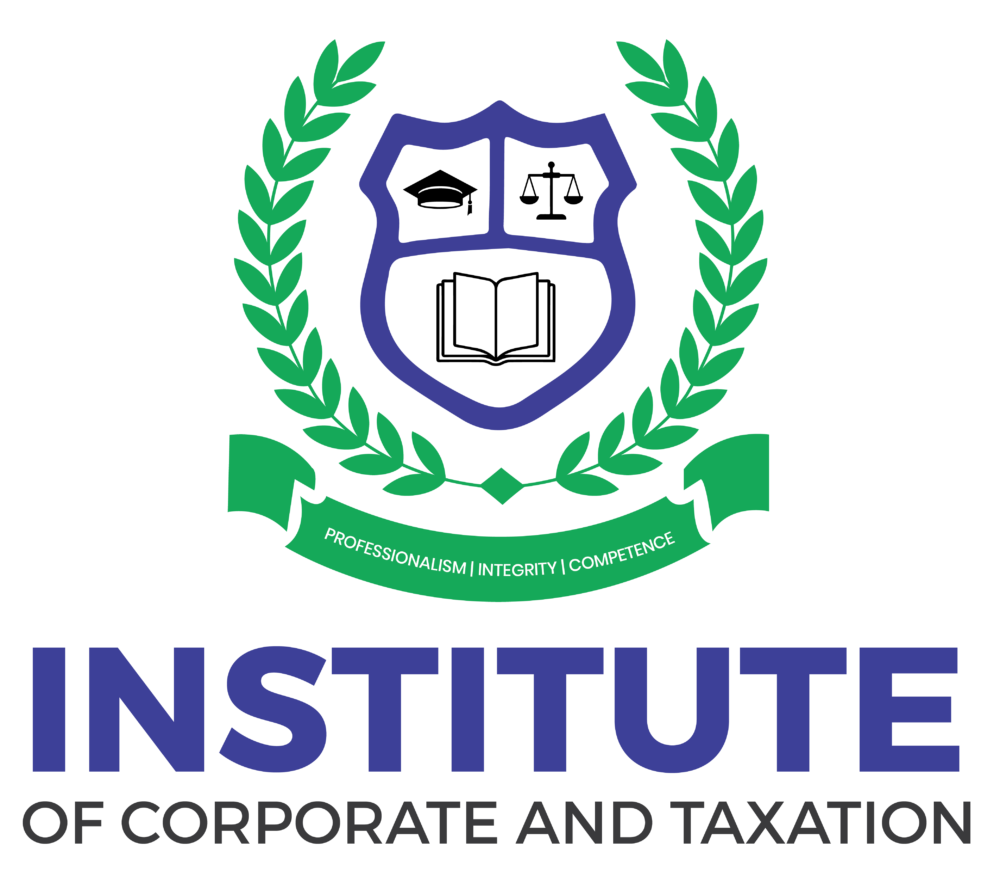
Why Every Tax Expert Needs Legal Knowledge in 2025
Corporate Law and Taxation: Why Every Tax Expert Needs Legal Knowledge in 2025
If you’re working in taxation or planning to become a tax consultant in Pakistan, here’s something you need to know: understanding corporate law isn’t optional anymore—it’s essential. The intersection of corporate law and taxation has become so intertwined that tax professionals who lack legal knowledge often find themselves hitting career roadblocks they didn’t see coming.
Think about it. How can you properly advise a client on tax planning if you don’t understand corporate restructuring? How do you handle tax compliance for mergers and acquisitions without knowing the legal framework? The truth is, you can’t. And that’s exactly why the most successful tax experts in Islamabad, Lahore, and Karachi are investing time to master both disciplines.
What Is Corporate Law and Taxation?
Corporate law and taxation represents the crucial meeting point between legal compliance and financial obligations for businesses. Let’s break this down in simple terms.
Corporate law deals with the formation, governance, and dissolution of companies. It covers everything from company incorporation to shareholder rights, board responsibilities, and regulatory compliance under Pakistan’s Companies Act 2017.
Corporate taxation, on the other hand, focuses on how businesses calculate, report, and pay taxes on their income. This includes understanding corporate income tax laws, withholding tax requirements, and FBR corporate tax regulations.
Here’s where it gets interesting: these two areas don’t exist in isolation. Every major business decision—whether it’s choosing a business structure, planning a merger, or restructuring operations—has both legal and tax implications. Miss one side of the equation, and you could be setting your client up for compliance issues or unnecessary tax burdens.
Corporate Law and Taxation Differences Explained
Many people confuse corporate law with tax law, but they serve different purposes while working together.
Corporate law establishes the rules of the game. It tells you how to set up a company in Pakistan, what your legal obligations are, and how to structure your business operations legally. It’s about governance, compliance, and protecting stakeholder interests.
Corporate taxation determines what you owe the government based on your business activities. It’s the practical application of tax legislation to corporate entities, considering income, deductions, credits, and compliance requirements.
The relationship works like this: corporate law creates the structure, and taxation fills in the financial obligations within that structure. For instance, when you register a private limited company under the Companies Act 2017, corporate law governs your formation process. But the moment you start earning income, corporate taxation rules kick in to determine your tax liability.
Why Tax Experts Must Study Corporate Law
Let me share something that surprises many accounting students. According to industry surveys, nearly 60% of tax consulting errors stem from misunderstanding the legal structure of the entity being advised. That’s a huge problem—and it’s completely avoidable.
The Reality of Modern Tax Practice
Today’s tax consultants aren’t just number crunchers. They’re strategic advisors who need to understand:
- Corporate governance and taxation: How board decisions affect tax positions
- Company incorporation and tax liabilities: Choosing between sole proprietorship, partnership, or corporate structure based on tax efficiency
- Corporate restructuring and taxation: The tax implications of mergers, demergers, and acquisitions
- Corporate compliance for tax advisors: Meeting both legal and fiscal requirements simultaneously
Real-World Scenarios Where Legal Knowledge Matters
Consider this example: A startup founder in Islamabad wants to know whether to register as a sole proprietor or private limited company. If you only understand taxation, you might recommend the option with lower immediate tax liability. But without corporate law knowledge, you’d miss critical factors like liability protection, future investment opportunities, and scalability issues.
Or take corporate mergers and acquisitions taxation. The tax treatment of an asset sale versus a share sale is dramatically different—but you can’t structure the deal properly without understanding the corporate legal framework governing both transactions.
Corporate Law and Taxation Basics for Beginners
Starting your journey into corporate law and taxation can feel overwhelming, but breaking it down into manageable concepts makes it much easier.
Understanding Corporate Tax Structure in Pakistan
Pakistan operates a dual tax system for corporations:
Federal Corporate Tax: Applied uniformly across Pakistan by the Federal Board of Revenue (FBR). The standard corporate tax rate varies based on company type and income levels. For 2025, most companies pay between 29-35% depending on whether they’re listed on the stock exchange.
Provincial Considerations: While income tax is federal, certain provincial taxes and levies affect overall corporate tax compliance, especially for companies operating across multiple provinces.
Key Corporate Legal Concepts Every Tax Professional Should Know
- Corporate Legal Framework Pakistan: The Companies Act 2017 is your foundation. It replaced the 1984 ordinance and brought Pakistan’s corporate law closer to international standards.
- Tax Compliance for Private Limited Companies: These entities have specific filing requirements, including annual audited accounts, tax returns, and various FBR compliance statements.
- Direct Tax and Corporate Law Link: Understanding how corporate structure affects income classification, deduction eligibility, and tax credits.
- Withholding Tax in Corporate Sector: Companies act as withholding agents for various payments, and getting this wrong means penalties for both the company and its advisors.
Corporate Tax Planning Strategies for Small Businesses
Small business owners in Pakistan often leave money on the table because they don’t understand available corporate tax planning strategies. As a tax professional, this is where your combined legal and taxation knowledge becomes incredibly valuable.
Legal Structures That Minimize Tax Burden
Tax Planning Through Corporate Structure isn’t about evasion—it’s about smart, legal optimization:
- Holding Company Structures: Can help with group taxation benefits and dividend distribution planning
- Special Purpose Vehicles: Useful for isolating specific business activities or investments
- Partnership Conversions: Sometimes converting from corporate to partnership structure (or vice versa) makes sense depending on circumstances
Legitimate Tax Credits and Incentives
The Pakistani government offers various corporate tax credits and incentives that many businesses overlook:
- Export industry benefits under various SROs (Statutory Regulatory Orders)
- Tax credits for employing fresh graduates
- Reduced rates for small companies meeting specific criteria
- Industry-specific incentives for textiles, IT, and manufacturing

The trick is knowing both the legal eligibility criteria and the proper tax treatment—another reason why corporate law knowledge matters.
How Corporate Law Affects Tax Compliance
Corporate tax compliance isn’t just about filing returns on time. It’s a comprehensive process that requires understanding both legal obligations and fiscal requirements.
Corporate Tax Compliance Checklist for 2025
Here’s what every corporation in Pakistan must handle:
Monthly Obligations:
- Withholding tax statements
- Sales tax returns (if registered)
- Employee income tax deductions
Quarterly Requirements:
- Advance tax payments based on previous year’s liability
- Quarterly accounts for certain sectors
Annual Compliance:
- Audited financial statements
- Corporate income tax return
- Annual return to SECP (Securities and Exchange Commission of Pakistan)
- Board resolutions documenting tax positions
Ongoing Monitoring:
- Changes in FBR corporate tax regulations
- Updates to Companies Act requirements
- New circulars affecting your industry
Missing any of these creates problems—and many stem from not understanding which obligations come from corporate law versus tax law.
Corporate Law and Taxation Course: What You Should Learn
If you’re serious about advancing your career in taxation, structured learning makes a massive difference. Here’s what comprehensive corporate law and taxation courses should cover.
Essential Course Components
Foundation Modules:
- Company law and taxation relationship
- Business law for tax consultants
- Understanding the Companies Act 2017
- Corporate tax regulations Pakistan overview
Practical Applications:
- Corporate tax filing process for different entity types
- How to set up a company with tax-efficient structures
- Tax implications of corporate restructuring
- International corporate tax and Pakistan rules
Advanced Topics:
- Advanced corporate taxation topics for practitioners
- Corporate tax planning course content for complex scenarios
- Handling tax audits and disputes
- Cross-border taxation issues
Finding the Right Course in Pakistan
When looking for a corporate law and taxation course in Islamabad or other Pakistani cities, consider these factors:
Course Depth: Does it cover both theoretical concepts and practical application? The best courses use real case studies from Pakistani businesses.
Instructor Expertise: Are the teachers practicing professionals who understand both SECP regulations and FBR requirements? Theory without practice doesn’t prepare you for real-world consulting.
Certification Value: Does the certificate hold weight with employers? An accredited corporate law and taxation certificate online or in-person should be recognized by professional bodies.
Practical Training: Look for courses offering corporate law and tax internship opportunities or practical workshops using actual company scenarios.
Why Choose ICT – Institute of Corporate and Taxation Islamabad
When it comes to specialized training in corporate law and taxation, choosing the right institute makes all the difference in your career trajectory.
The Institute of Corporate and Taxation in Islamabad has established itself as a leading provider of integrated legal and tax education. What sets ICT apart is their practical, hands-on approach that goes beyond textbook theory.
What Makes ICT Different
Industry-Connected Faculty: ICT’s instructors aren’t just academics—they’re practicing corporate lawyers, tax consultants, and chartered accountants who bring real-world experience into every class. They understand the challenges you’ll face because they navigate them daily.
Comprehensive Curriculum: The corporate law course in Islamabad offered by ICT covers everything from basic company law to advanced tax planning strategies. You’ll learn the importance of corporate law for tax experts through practical case studies drawn from actual Pakistani businesses.
Career Support: Beyond education, ICT provides career guidance, networking opportunities, and connections with corporate law and taxation consultants who hire graduates. Many students secure positions before completing their certification.
Flexible Learning Options: Understanding that many students are working professionals, ICT offers both in-person and online formats, allowing you to build corporate law training for tax professionals into your existing schedule.
Advanced Taxation Courses at ICT
ICT’s advanced corporate law and taxation course goes deeper into specialized areas like taxation for multinational companies in Pakistan, complex restructuring scenarios, and international tax planning. These advanced modules prepare you for senior tax consultant roles and corporate tax advisory services positions.
Career Opportunities in Corporate Law and Taxation
The job market for professionals who understand both corporate law and taxation is expanding rapidly in Pakistan. Companies increasingly want advisors who can handle both compliance sides simultaneously.
Corporate Tax Expert Training Pays Off
Average Starting Salaries: Entry-level corporate tax consultants in major Pakistani cities earn between PKR 40,000-60,000 monthly. With corporate law knowledge added, that range jumps to PKR 60,000-85,000.
Mid-Career Potential: After 3-5 years, professionals specializing in corporate law and taxation consultant services can earn PKR 150,000-300,000 monthly, especially in Big Four accounting firms or multinational corporations.
Senior Positions: Corporate tax advisory services directors and partners in law or accounting firms often earn well into seven figures annually.
Where Corporate Law and Taxation Experts Work
- Big Four Accounting Firms: PWC, Deloitte, EY, and KPMG constantly seek professionals with combined expertise
- Corporate Law Firms: Especially those serving business clients need tax-savvy lawyers
- In-House Corporate Roles: Large companies increasingly hire corporate tax experts for their internal teams
- Consulting Practices: Many professionals start independent corporate law and taxation consultant near me type practices
- Government Positions: FBR and SECP also value combined legal-tax expertise
How to Study Corporate Law and Taxation Effectively
Success in mastering both disciplines requires strategic learning approaches. Here’s how to make your study time count.
Building Your Knowledge Foundation
Start with fundamentals before jumping into complex topics. Understand basic corporate structures under Pakistan law before tackling sophisticated tax planning strategies. Think of it like building a house—you need a solid foundation before adding floors.
Recommended Learning Sequence:
- Basic company law concepts and entity types
- Fundamental corporate taxation principles
- Integration points between law and tax
- Practical application through case studies
- Advanced strategies and complex scenarios
Practical Learning Techniques
Case Study Analysis: Review actual corporate tax filings and legal documents. Understanding real-world applications beats pure theory every time.
Mock Scenarios: Practice advising fictional clients on corporate structure and tax planning decisions. This builds the judgment you’ll need in practice.
Stay Current: Follow FBR notifications, SECP circulars, and court decisions affecting corporate law and taxation. Subscribe to professional newsletters and join relevant LinkedIn groups.
Network with Practitioners: Connect with working professionals who can share insights about how corporate law affects tax compliance in practice.
International Perspective: Corporate Law and Taxation in Pakistan vs USA
Understanding international differences helps Pakistani professionals serve clients with cross-border operations or foreign investment.
Structural Differences
USA Corporate Tax System: Features both federal and state corporate taxes, with federal rates around 21% after the Tax Cuts and Jobs Act. The system allows for consolidated returns for corporate groups and has complex transfer pricing rules.
Pakistan Corporate Tax System: Primarily federal with rates between 29-35% for most corporations. Less complex consolidation rules but stricter withholding tax requirements.
What Pakistani Professionals Can Learn
Studying international corporate tax compliance methodologies helps you:
- Better serve multinational clients operating in Pakistan
- Understand transfer pricing from multiple perspectives
- Compare tax efficiency across jurisdictions
- Advise on international corporate tax and Pakistan rules for foreign investment
Common Questions About Corporate Law and Taxation
What is the difference between business law and tax law?
Business law (including corporate law) provides the legal framework for how companies operate, including formation, governance, contracts, and compliance. Tax law determines the financial obligations businesses owe to the government. They overlap significantly—every major business decision has both legal structure and tax consequences.
Can lawyers specialize in corporate taxation?
Absolutely. Many successful lawyers develop tax specializations, particularly in corporate taxation. The combination of legal training and tax expertise makes these professionals extremely valuable for handling complex corporate matters like mergers, restructurings, and international transactions.
Is corporate law knowledge important for accountants?
Extremely important. Chartered accountants who understand corporate legal frameworks provide better client service, avoid compliance mistakes, and command higher fees. The legal knowledge for chartered accountants has become essential rather than optional in today’s integrated business environment.
What is corporate taxation in Pakistan?
Corporate taxation in Pakistan refers to the tax system applied to companies incorporated under the Companies Act. It includes income tax on corporate profits, withholding obligations on various payments, minimum tax provisions, and sector-specific regulations administered by the Federal Board of Revenue (FBR).
How does corporate law affect tax planning?
Corporate law determines what business structures and transactions are legally permissible, while tax planning works within those legal boundaries to minimize tax liability. Understanding corporate restructuring rules, merger regulations, and governance requirements is essential for effective tax planning strategies.
Which corporate law course is best in Islamabad?
When evaluating corporate law training options in Islamabad, look for programs that integrate practical application with theoretical knowledge. The Institute of Corporate and Taxation offers comprehensive training specifically designed for tax professionals, combining corporate legal education with taxation expertise relevant to Pakistani practice.
Conclusion: Your Next Steps in Corporate Law and Taxation
The integration of corporate law and taxation isn’t a future trend—it’s today’s reality. Tax professionals who ignore the legal framework do so at their own career risk, while those who embrace both disciplines position themselves for exceptional opportunities.
Whether you’re a practicing accountant looking to expand your expertise, a law graduate interested in taxation, or a business professional seeking deeper understanding, investing in corporate law and taxation education pays immediate dividends.
The landscape of corporate compliance and taxation grows more complex each year. New regulations, evolving business structures, and international connections mean the demand for professionals who truly understand both sides will only increase.
Ready to advance your career?
Book a seat at Advanced Taxation courses offered by ICT – the Institute of Corporate and Taxation in Islamabad. Their integrated approach to teaching the importance of legal knowledge in taxation prepares you for real-world challenges, not just exams.
Don’t wait for the gap in your knowledge to create problems for your clients or your career. The intersection of corporate law and taxation is where the most valuable professional expertise lives. Position yourself at that intersection, and watch your career opportunities multiply.
Visit ICT today to explore their comprehensive corporate law and taxation courses, speak with faculty about your career goals, and take the first step toward becoming the complete corporate tax professional that modern businesses desperately need.





